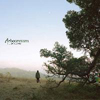 On their fourth full-length record, Arbouretum turn their churning rhythms and buzzing guitars inward to explore the uncanny spaces of the collective unconscious. Inspired in part by Carl Jung, Dave Heumann's lyrics are featured more prominently on The Gathering, which might explain why the band sounds looser and less aggressive this time around. The change accentuates Arbouretum's strengths and shows off Heumann's stupendous songwriting ability.
On their fourth full-length record, Arbouretum turn their churning rhythms and buzzing guitars inward to explore the uncanny spaces of the collective unconscious. Inspired in part by Carl Jung, Dave Heumann's lyrics are featured more prominently on The Gathering, which might explain why the band sounds looser and less aggressive this time around. The change accentuates Arbouretum's strengths and shows off Heumann's stupendous songwriting ability.
When I read that Dave Heumann used Carl Jung and the Red Book as a source of inspiration for The Gathering, I immediately restarted the record and focused on Dave's lyrics. Doing so was an involuntary mental reflex. Listening to the album's opener, "The White Bird," a second time, I paid close attention to all of Heumann's symbols and references: small white birds, geomatter, the gloaming, true natures vs. superficial realities, and esoteric knowledge. Images such as these are woven into the fabric of The Gathering, and they are frequently employed to tell stories about traveling, a theme also present in the artwork. Exploring the latent content in Heumann's words inevitably leads to self-exploration, so that listening to the record is a little like participating in it.
Musically, the band follows Heumann on his psycho-spiritual quest. Their inclusive approach, which blends Crazy Horse with Bardo Pond and Palace Music, is the musical equivalent of Dave's nebulous lyricism. Despite having a sound similar to previous records, a number of new musicians are featured on The Gathering. Guitarist Steve Stroheimer and percussionist Daniel Franz are replaced on this record by J.V. Brian Carey, who takes up the skins, and Matthew Pierce, who plays keyboards and serves as a second percussionist; that leaves Dave on the six-string and bassist Corey Allender, who is the only musician other than Heumann who also appeared on 2009's Song of the Pearl.
Oddly, losing one guitarist resulted in a thicker, more layered sound for Arbouretum. Capable of absolutely massive, buzz-drenched squalor, the band also produces eerily atmospheric music, which sometimes supports and sometimes mimics Dave's vocal melodies. No matter how chaotic that confluence becomes, Carey holds the band together, demonstrating once again just how important the drummer is to Arbouretum's music. He and Allender manage to make Heumann and Pierce's efferent noises coalesce, so that The Gathering has a chunky, sometimes pulsing quality about it. Together they open up an inner space, which can be as personal or objective as it needs to be.
But, Dave's symbols and metaphors didn't take on a personal dimension for me until I heard their cover of Jimmy Webb's "Highwayman," which sits at the center of the album. As the Highwaymen, Johnny Cash, Waylon Jennings, Kris Kristofferson, and Willie Nelson made this song popular, but both Glen Campbell and Webb produced outstanding versions of their own. Webb's masterpiece, which is as much about explorers and outlaws as it is about spiritual archetypes, epitomizes the rest of The Gathering perfectly, and also shows that Heumann is as concerned with great songwriting as he is with psychedelic noise and Jungian psychology.
Through the simplicity and directness of that tune, Arbouretum established a firm connection to my own consciousness, primarily because "Highwayman" is one of my favorite songs, but also because it summons up many childhood memories. Afterward, The Gathering took on new dimensions for me, each one adding to my enjoyment. "Highwayman" probably won't have the same effect on other listeners, but I doubt that the band's superb playing and Dave's songwriting would leave anyone unimpressed. The Gathering is a phenomenal record, with or without Carl Jung and his numinous influence.
samples:
 
Read More


